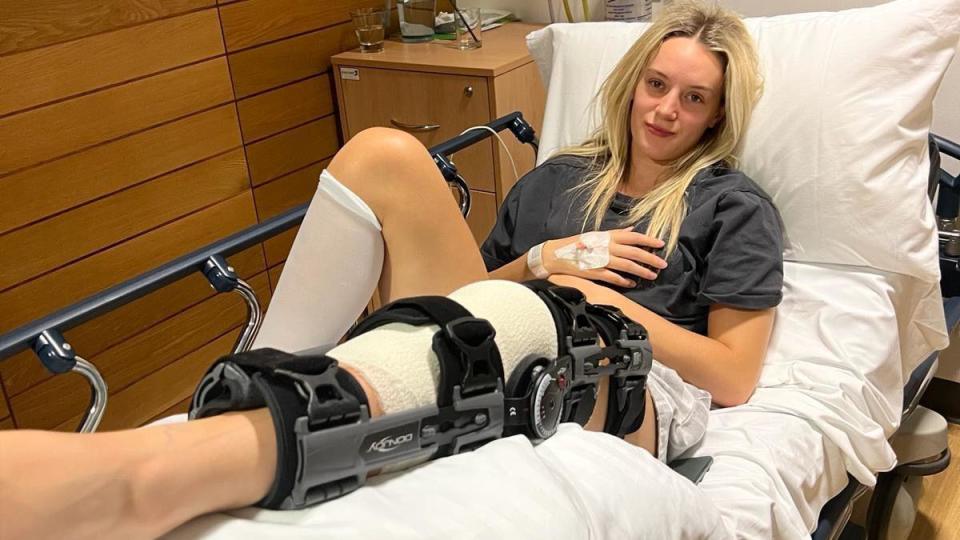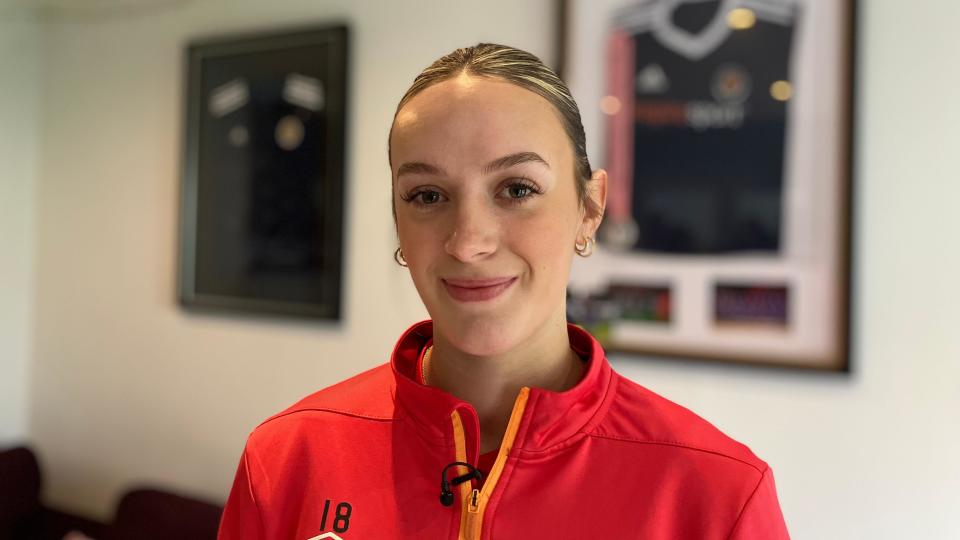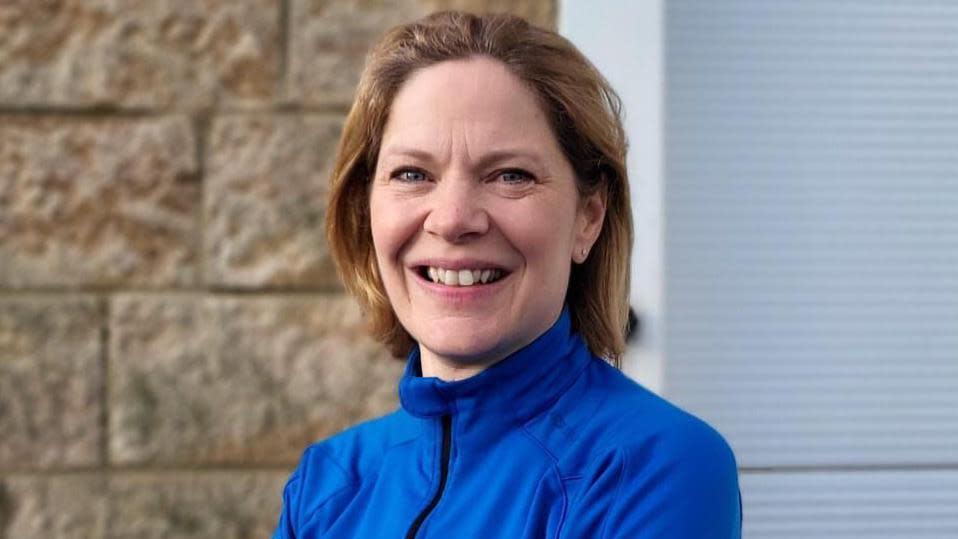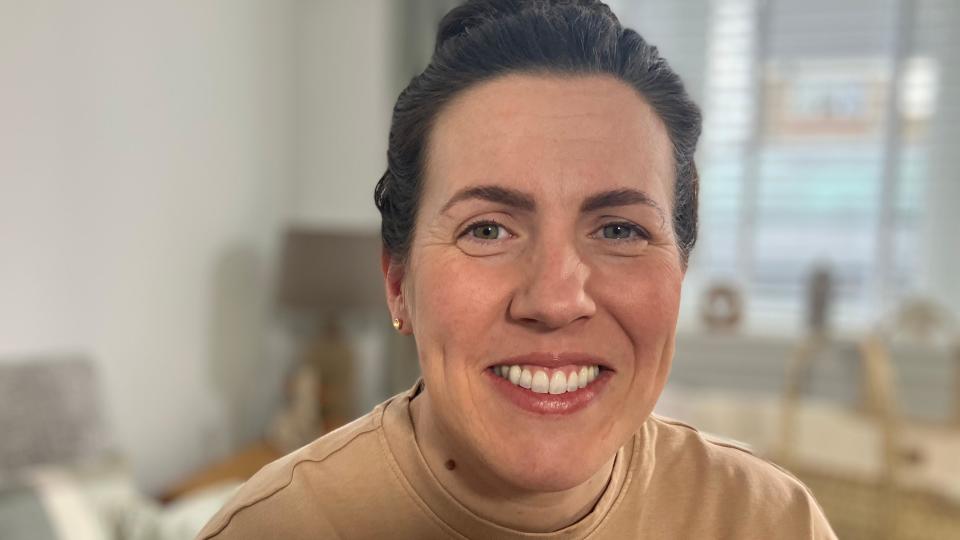'I went to kick the ball and my knee collapsed'

Young footballer Gigi Bradford was playing for Hearts and in the under-18s Scotland squad when one move ended her season before it began.
During the first training of the year, she ruptured her ACL, a serious knee injury that research suggests is more common among women athletes than men.
"I just went up to kick the ball, kind of off balance and when I jumped my knee collapsed," the 17-year-old said.
"I mean I've done that movement hundreds of times before and my knee just went, I felt a little pop and just lay there.
"It was excruciating pain, absolute agony”.
Gigi is now six months into rehabilitation and determined to come back both physically and mentally stronger.
But she does feel girls are at a disadvantage.
"Boys are introduced to academies really young, whereas I wasn't in an academy until 15, " she said.
"Their bodies are really built up from a young age so they are used to really high intensity training but us girls, when our bodies are put under loads of physical stress we are not used to it."

Doctors say they have seen a dramatic rise in the number of athletes needing surgery for ACL injuries, with women being three to six times more likely than men.
An anterior cruciate ligament (ACL) sprain or tear is one of the most common knee injuries, especially in sports involving pivoting movements such as football, basketball or hockey.
It can often take months to recover and increases the risk of osteoarthritis in later life.
Scotland international Christy Grimshaw is one of the latest players to suffer a setback, having to withdraw from the Scotland women's squad this week due to an ACL tear.
Two of the other current squad members, Caroline Weir and Jane Ross, are only just back after time recovering on the sidelines.
But international research suggests that up to 50% of ACLs could be prevented by a structured warm up.

Juliet Gold, a physiotherapist in Edinburgh who specialises in rehabilitation of knee injuries, once snapped her own ACL while playing lacrosse for Scotland.
She now treats patients in the NHS and works with sports clubs to promote preventative warm-up programmes.
“A structured warm up programme that really improves the quality of the lunging, pivoting, the cutting and changing of direction in these types of sports can reduce the occurrence of these types of injuries by about 50%,” she told BBC Scotland News.
She said it was vital that this routine was done regularly and properly before both training sessions and matches.
“It’s the pattern recognition," she said.
"So it’s drilling the players that when you’re lunging onto one foot, your knee comes over your toe and they get used to that pattern of movements so that when they’re playing a match it comes second nature and they’re less likely to put their knee in a vulnerable position and rupture their ACL.”

There are many theories about why ACL injuries are more common in women, including differences in anatomy such as the width of pelvis and length of femurs, and the influence of the menstrual cycle.
Experts are also increasingly concerned about the impact of gendered factors, such as boots being designed for men’s feet as well as the quality of pitches women play on.
One of Scotland’s most capped players Leanne Crichton says the women’s game has quickly grown in popularity in recent years but Scotland needs better support facilities.
She says players are being asked to train as much as full-time professional players without the adequate level of physiotherapists, sport scientists and doctors.
“Whereas in the men’s game, where it’s been established for so long and the investment has clearly been there for a huge number of years, the players are used to that level of support and the female players now just don’t have it,” she said.
Ms Crichton said that while warm-ups were always “the most boring part of the day” – especially for younger players - it is “so important” that teams incorporate preventative measures into their training regimes to avoid longer-term harm.
National squad member Fiona Brown, who has suffered three ACL injuries herself, also joined the calls for more to be done to get a handle on the problem.
Speaking at a press conference this week after teammate Christy Grimshaw suffered a tear while playing for AC Milan, she said footballers are playing too many games.
“I think that’s a massive part of it, and unfortunately the people at the top are the only ones that can fix that,” she said.
It comes as Scotland is set to host the UK’s first research conference on injury prevention ahead of the Olympics, bringing together experts as well as professional bodies.
Orthopaedic Surgeon Iain Murray specialises in sports injuries and says the rise in sporting injury is worrying – particularly in teenagers.
“While higher participation rates of females in sport is a fantastic development, this is likely to be a factor contributing to increasing number of injuries,” he said.
“These injuries are quite serious and can create a cascade of other injuries that may prevent them from taking part and can have implications in the long term."

